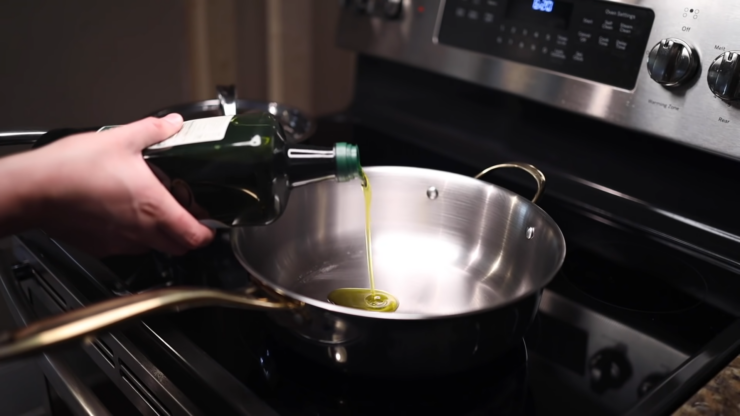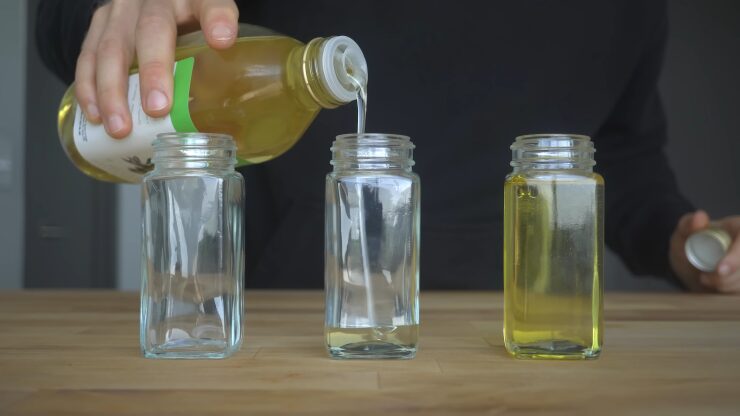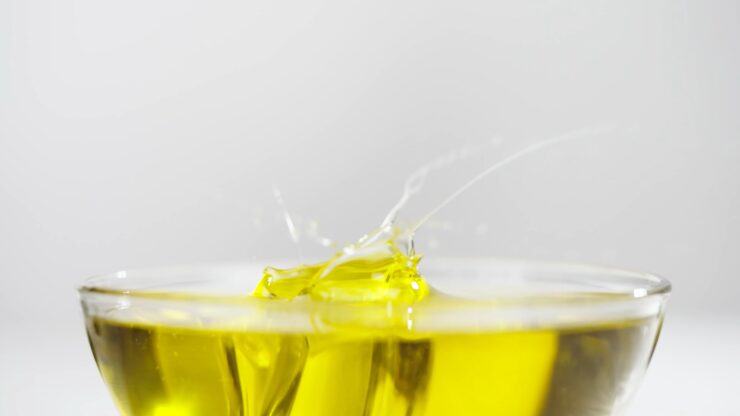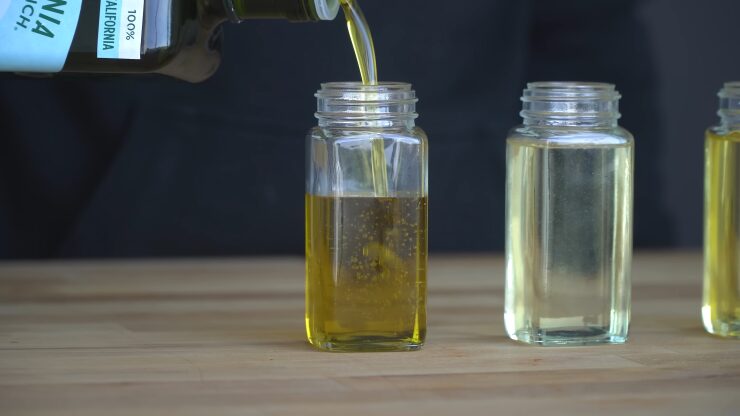Extra virgin olive oil, often abbreviated as EVOO, is a staple in many kitchens and a key ingredient in numerous cuisines. It’s not just a culinary delight; it’s also a powerhouse of health benefits.
When discussing olive oil, it’s akin to talking about a high-quality fuel that optimizes the performance of a well-tuned engine. The appropriate amount of extra virgin olive oil can significantly boost human health.
Understanding Extra Virgin Olive Oil

Extra Virgin Olive Oil (EVOO) is a staple in many diets around the world, renowned for its flavor and health benefits. Extracted through cold pressing olives, this oil retains more of the natural vitamins and minerals of the fruit.
It’s a primary component of the Mediterranean diet, often linked to heart health and longevity. Now, let’s explore why you should buy extra virgin olive oil to elevate your culinary and nutritional experiences.
Health Benefits
This oil is rich in monounsaturated fats, particularly oleic acid, which are known to reduce inflammation and have beneficial effects on genes linked to cancer. The oil also contains antioxidants like vitamin E and polyphenols. These compounds are believed to combat oxidative stress and reduce the risk of chronic diseases.
Recommended Daily Intake
Experts generally recommend consuming about 1-2 tablespoons (15-30 ml) daily. This amount aligns with dietary guidelines for healthy fat intake while considering calorie needs. Consuming within this range can be beneficial as part of a balanced diet.
Risks of Overconsumption

While EVOO is healthy, it’s high in calories, providing about 120 calories per tablespoon. Overconsuming can lead to excessive calorie intake, potentially resulting in weight gain. It’s also important to balance intake with other sources of healthy fats like nuts and seeds.
Incorporating EVOO into Your Diet
Olive oil can be used in various ways, such as in salad dressings, for sautéing vegetables, or as a dip for bread. Replacing unhealthy fats with this oil is a great way to incorporate it into your diet. However, it should not be used for high-temperature cooking as it can oxidize.
Monitoring Daily Intake
Keeping track of how much you consume is important, especially if you’re monitoring calorie intake. Measuring out your servings rather than pouring directly from the bottle can help manage your consumption. Additionally, paying attention to the quality of EVOO is crucial, as not all oils are created equal.
Quality Matters in EVOO

The quality significantly impacts its health benefits. High-quality ones contains more antioxidants and polyphenols compared to lower quality or refined olive oils. When choosing an EVOO, look for bottles labeled as “extra virgin,” which indicates that the oil has been minimally processed and meets certain standards of acidity and flavor.
Cold-pressed ones are also a good choice as it suggests that the oil was extracted without heat, which can preserve its nutritional quality.
Incorporating in Different Diets
It fits well in various dietary patterns, including Mediterranean, vegan, and low-carb diets. Its versatility and health benefits make it a valuable addition across different dietary needs. For those on calorie-restricted diets, measuring EVOO can ensure it’s consumed in moderation. In contrast, for those on high-fat diets like the ketogenic diet, EVOO can be a primary fat source.
Balancing Olive Oil with Other Fats
While EVOO is beneficial, it’s important to consume a variety of fats for optimal health. This includes omega-3 fatty acids found in fish and flaxseeds, and other monounsaturated fats found in avocados and nuts. A balanced fat intake ensures you get a range of essential fatty acids and fat-soluble vitamins.
Cooking Practices
The way you use EVOO in cooking can affect its health benefits. It’s best used at low to medium cooking temperatures to prevent oxidation. For high-heat cooking, oils with higher smoke points like avocado oil might be more suitable. It is ideal for dressings, marinades, or adding to dishes after cooking.
Storing Practices
Proper storage is essential for maintaining its quality. Keep it in a cool, dark place and tightly sealed to protect it from oxidation and rancidity. Exposure to light and heat can degrade the oil’s beneficial compounds. Using EVOO within a few months of opening ensures that you benefit from its optimal nutritional profile.
EVOO in Culinary Contexts
Extra Virgin Olive Oil is not just a health food but also a culinary delight. Its unique taste can enhance the flavor of various dishes. From drizzling over salads to finishing soups and stews, EVOO adds a distinct flavor.
Its use in traditional Mediterranean cuisine showcases its versatility in both cold and warm dishes. However, to preserve its flavor and health benefits, it’s best used in recipes that don’t require high heat.
EVOO and Heart Health
One of the most celebrated benefits of EVOO is its positive impact on heart health. The monounsaturated fats can help reduce bad cholesterol levels and lower the risk of heart disease.
Studies have shown that populations consuming diets high in EVOO, such as those in Mediterranean regions, have lower rates of heart-related problems. This underscores the importance of including EVOO as part of a heart-healthy diet.
EVOO and Weight Management
While high in calories, EVOO can be part of a weight management strategy. Its satiating properties can help reduce overall calorie intake by curbing appetite. However, this requires balancing overall calorie consumption and integrating EVOO into a well-planned diet.
EVOO and Skin Health

EVOO is also beneficial for skin health due to its antioxidant properties. It can help protect the skin from oxidative stress and may improve skin moisture and elasticity. Some people also use EVOO in natural skincare routines, although its effectiveness can vary depending on skin type.
End Note
In conclusion, Extra Virgin Olive Oil is a versatile, flavorful, and healthful oil. Its benefits range from enhancing heart health to contributing to a balanced diet. When consumed in moderation, EVOO can be a valuable part of a nutritious and enjoyable eating pattern.
Remember, quality matters in choosing EVOO, and how you incorporate it into your diet can influence its health benefits.

